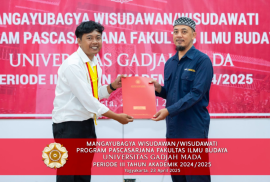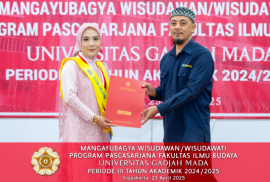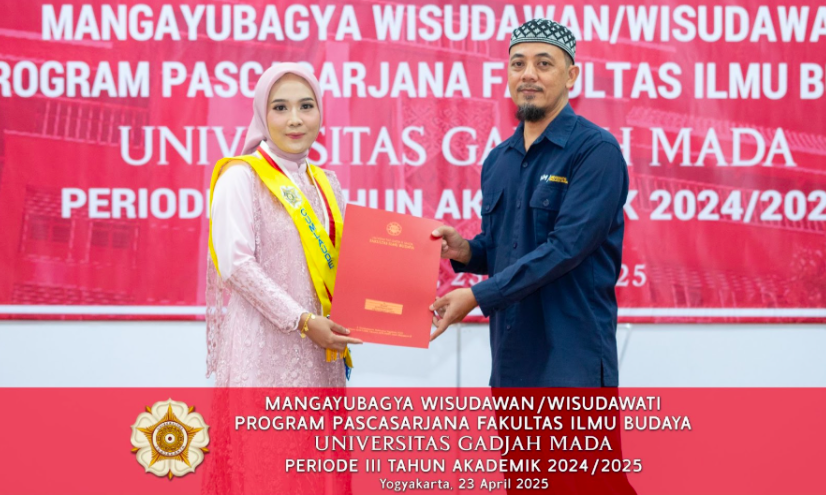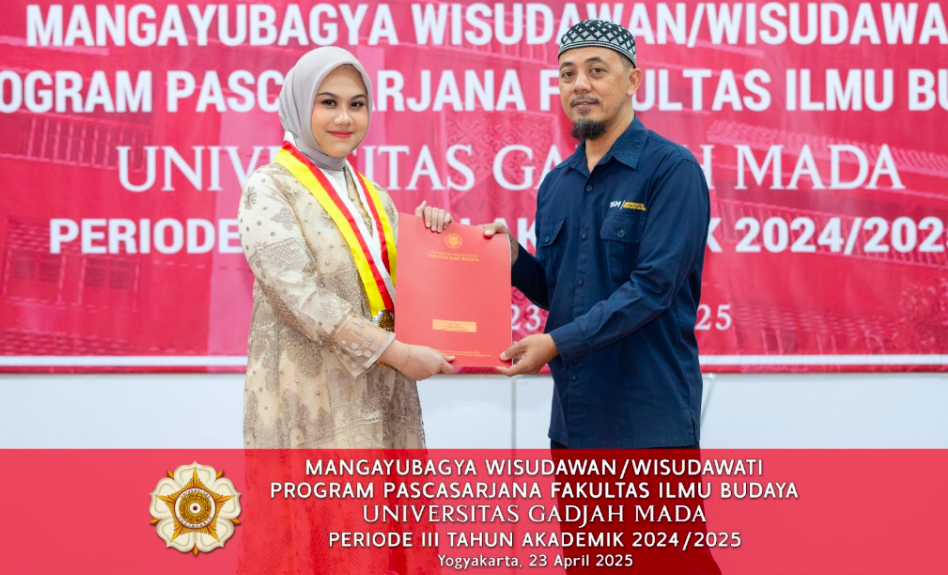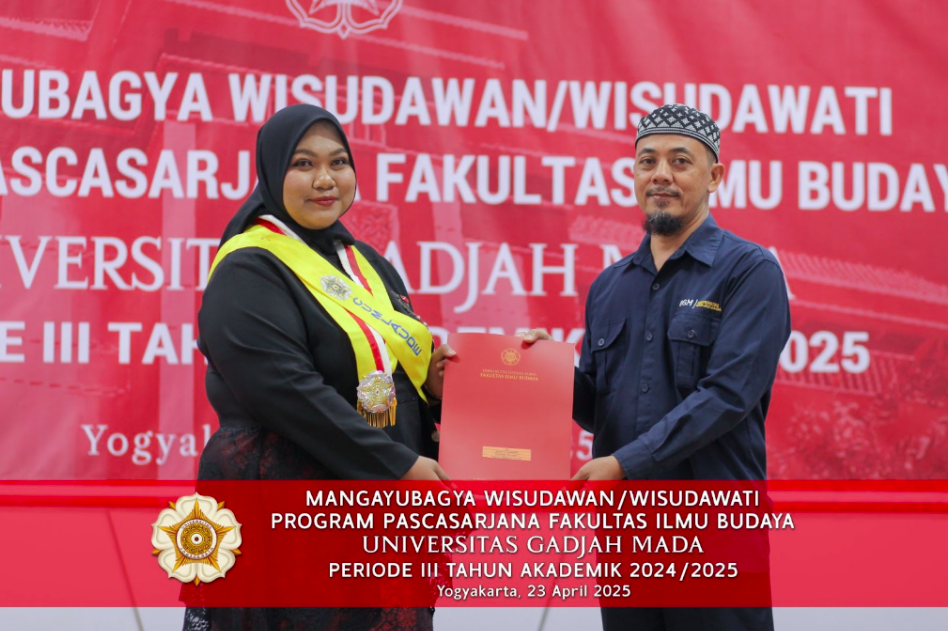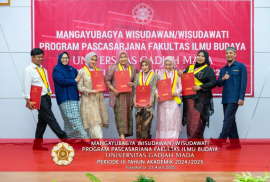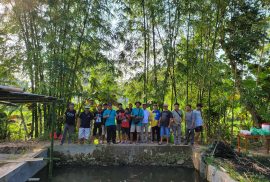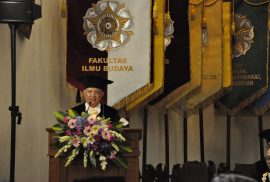Yogyakarta, 30/4/2025 – Amid the shifting focus of American Studies, which is no longer confined to the geographical boundaries of the United States, the Master’s Program in American Studies at Universitas Gadjah Mada demonstrates how a transnational approach opens up a broader and more relevant scope of study. Students not only study America as a nation but also explore how American values, culture, and ideologies move across borders, infiltrate local spaces, and interact with the social realities in Indonesia. From street music to beauty pageant stages, this transnational approach places American Studies as a critical space to understand the intersection of global and local cultures, while also uncovering the power relations that accompany it.
One clear example of how American culture transforms into a local form can be found in the heart of Yogyakarta, specifically in the Wijilan area. A. Fahmi Dahlan, S.S., M.A., examines the hip-hop community in Wijilan, Yogyakarta. With a transnational approach in American Studies and Gramsci’s theory of cultural hegemony, Fahmi explores how the hip-hop culture, originating from America, is not merely imitated but reinterpreted and adapted to the local context. In the hands of the youth in Wijilan, hip-hop becomes more than just music or fashion—it becomes a medium for social criticism, identity expression, and community empowerment. Through activities like Kidz on the Beat, the Soringin festival, and distinctive fashion styles, it is evident how global culture is negotiated into a form that is both contextual and meaningful locally. This research shows that popular culture can create participatory spaces that are inclusive and promote social transformation from the grassroots.
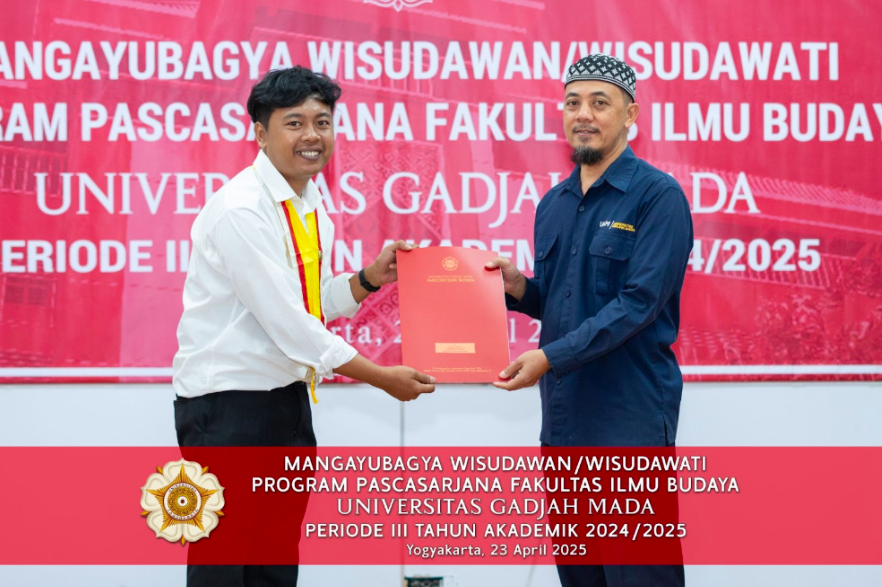
Fahmi Dahlan, S.S., M.A. with Dr. Aris Munandar, M.Hum., Head of the American Studies Master’s Program, FIB UGM
Meanwhile, Aprilia Nilham, S.Pd., M.A., in her study of the Puteri Indonesia pageant, uncovers another side of American cultural hegemony, this time through international beauty contests, which often influence local cultural values in Indonesia. This study reveals how American culture, through the influence of Miss Universe, shapes the Puteri Indonesia pageant and reflects the evolving global cultural hegemony. Using Gramsci’s theory of hegemony, the research shows that while Puteri Indonesia is supposed to reflect Indonesian cultural identity, American culture has subtly integrated into various aspects, from lifestyle to language. Controversies surrounding issues such as bikinis, transgender participants, and cooperation with Israel highlight the tensions between local and global values. On the other hand, this hegemony also underscores the importance of critical understanding of the media and global culture, so that society can balance external influences while maintaining local values in the effort to create an inclusive, just, and competitive society.
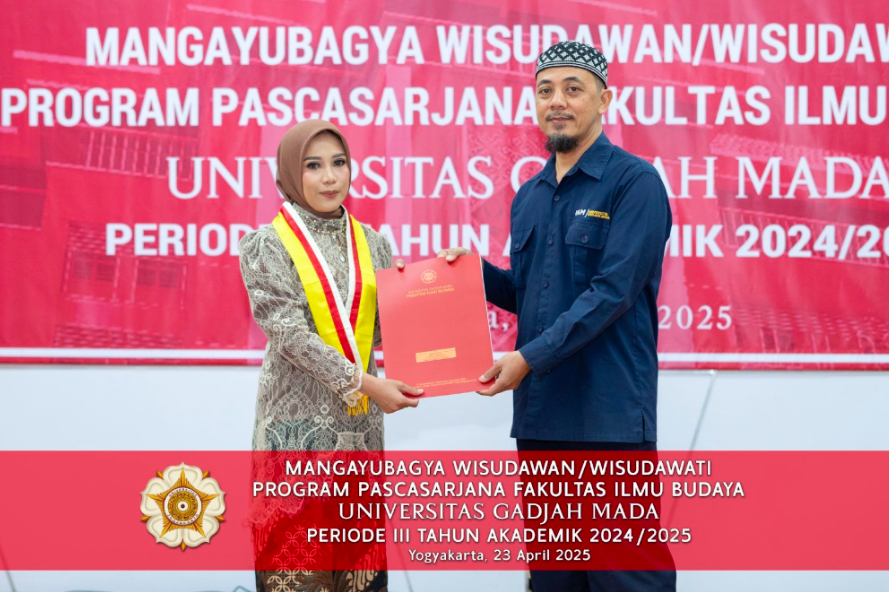
Aprilia Nilham, S.Pd., M.A., with Dr. Aris Munandar, M.Hum., Head of the American Studies Master’s Program, FIB UGM
Through a transnational approach in American Studies, both studies encourage us not to passively accept the influence of global culture but to critically reexamine, question, and transform it into something more relevant and meaningful within the local context. American Studies, in this regard, serves not only as a study of America but also as a tool to understand and respond to global forces critically, opening spaces for more just and sovereign discourses. Thus, the contribution of American Studies in responding to global cultural dynamics is significant, both in understanding the influence of America in Indonesia and enriching global discourse with empowered local perspectives.

